Farming concerns: Ohio farmers talk soil, higher costs with Sen. Sherrod Brown
- Oops!Something went wrong.Please try again later.
FRANKLIN TWP. − An organic farm in Wayne County hosted U.S. Sen. Sherrod Brown and other Ohio farmers on Tuesday to discuss agricultural issues and share concerns that could be addressed in the 2023 Farm Bill.
Brown's visit to the rural community, which includes many Amish farms, kicked off with a tour of three buildings at Green Field Farms.
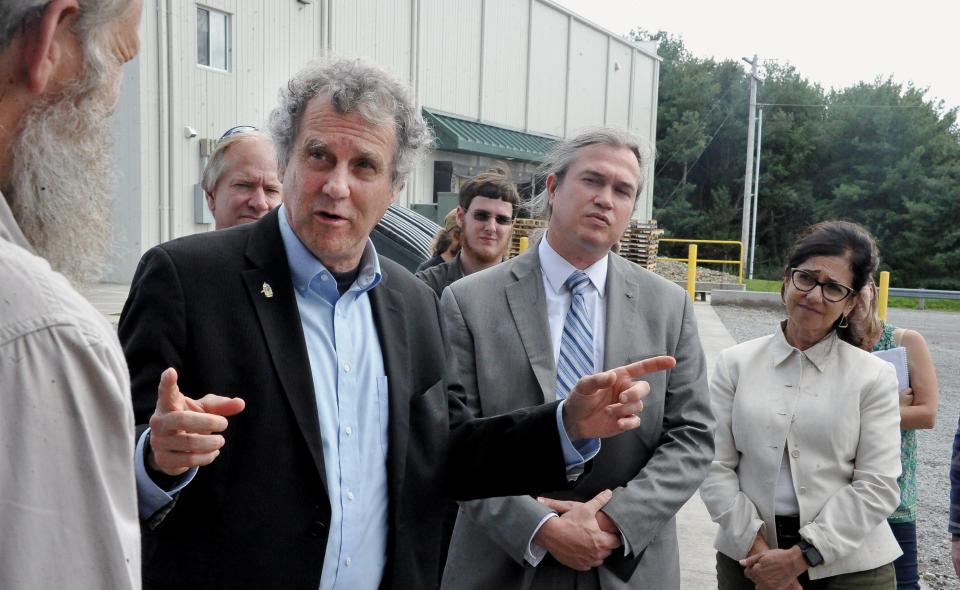
Leon Wengerd, CEO of the farm near the border of Holmes County, led the tour of the soil building, where they blend minerals and fertilizers.
“We offer farmers customized soil for different fields like tomatoes and peppers,” Wengerd said.
More: Family Field Dayhttps://www.the-daily-record.com/story/sports/outdoors/2022/07/24/holmes-family-farm-field-days-draws-crowd-thousands/10
Just visited Green Field Farms in Wooster, an Amish farmer co-op that supports both the farmers and the local community.
In the next Farm Bill, I want to make it easier for families to bring Ohio-grown vegetables and food right to their dinner tables. pic.twitter.com/2JQ1pIbBqz— Sherrod Brown (@SenSherrodBrown) August 30, 2022
Green Field Farms switched from conventional growing to organic produce in 2007. One of the issues they have struggled with the past few years is increased costs.
“Our farmers have a higher cost of production because they are organic farmers, and the cost that is associated with this type of farming needs a higher price in the marketplace,” said Wengerd, explaining that fertilizer and packaging costs have gone up for farmers.
The tour continued to the production building, where they pack and ship farm products to distribution centers. Then, to a third building where they keep all the packaging supplies.
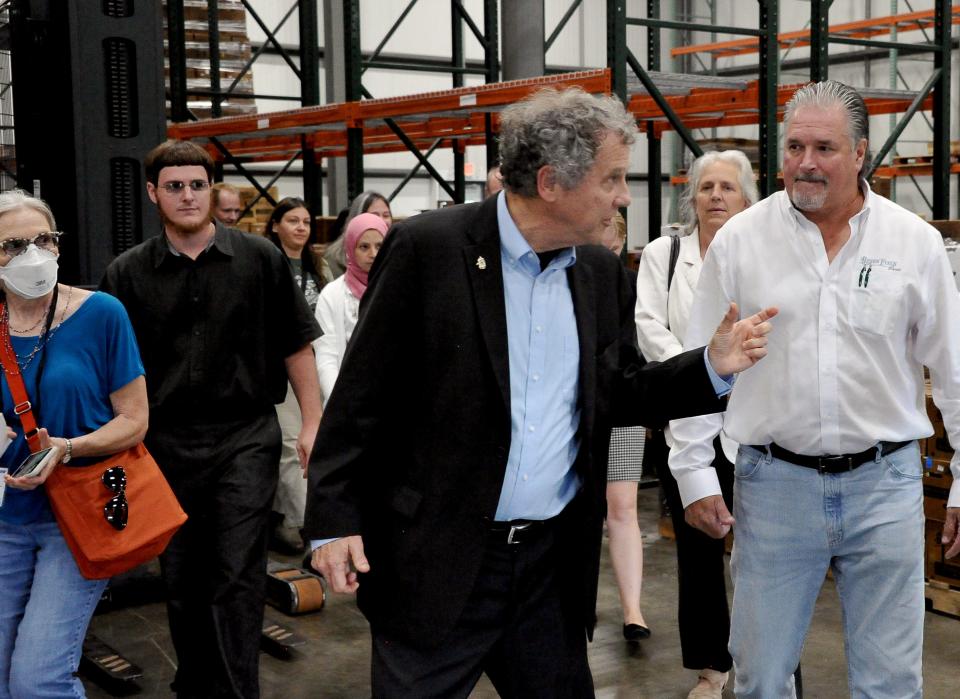
Ohio farmers share labor shortage concerns as Sen. Sherrod Brown tours Green Field Farms in Wayne County
About 10 local farmers and stakeholders from areas such as Dalton, Ashtabula, Cleveland and Deerfield attended the roundtable.
Brown talks with farmers around the state every four to five years to learn about their priorities as they relate to the Farm Bill, which is reviewed every five years.
Some of the farmers shared worries related to the labor shortage.
Mike Jones, owner of Tierra Verde Farms in Portage County, said there are not enough veterinarians, so his animals only get about two visits a year. And organic-fed animals require some specialized care.
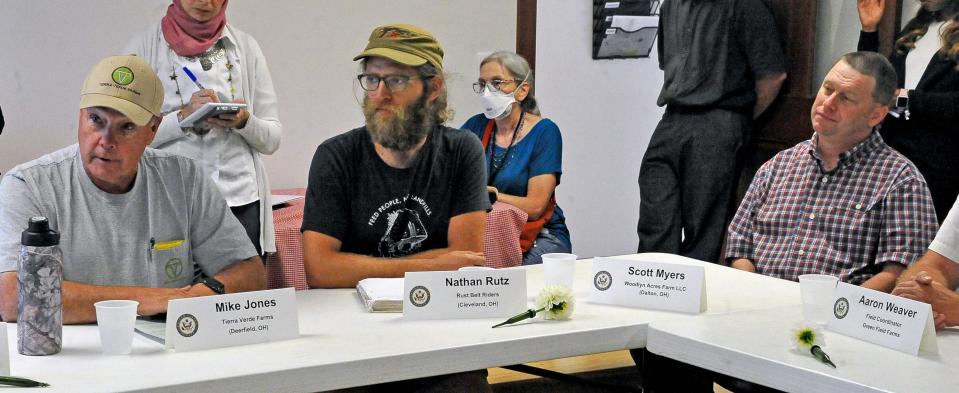
Butchers also are in short supply, said Jeff Dean, who operates an organic farm in Clyde.
“If COVID showed us anything, it showed us that we have a shortage of butchers across the country,” Dean said, noting in some cases he had to book a butcher six months before raising his animals.
Consolidation of dairies is another area of concern for some. As large cooperatives possess a large share of the market, it leaves less room for organic farmers. And organic farmers get little financial assistance from the Environmental Quality Incentives Program, a voluntary program that encourages farmers to improve agricultural operations while conserving natural resources.

Owner of Woodlyn Acres Farm, Scott Myers, said small farms can’t receive the money or receive lower scores on their incentive program.
“In Wayne County, there are very few cover crops that are covered through the government programs,” Myers said.
Farmers are 'part of the solution' to climate, water and healthy food challenges
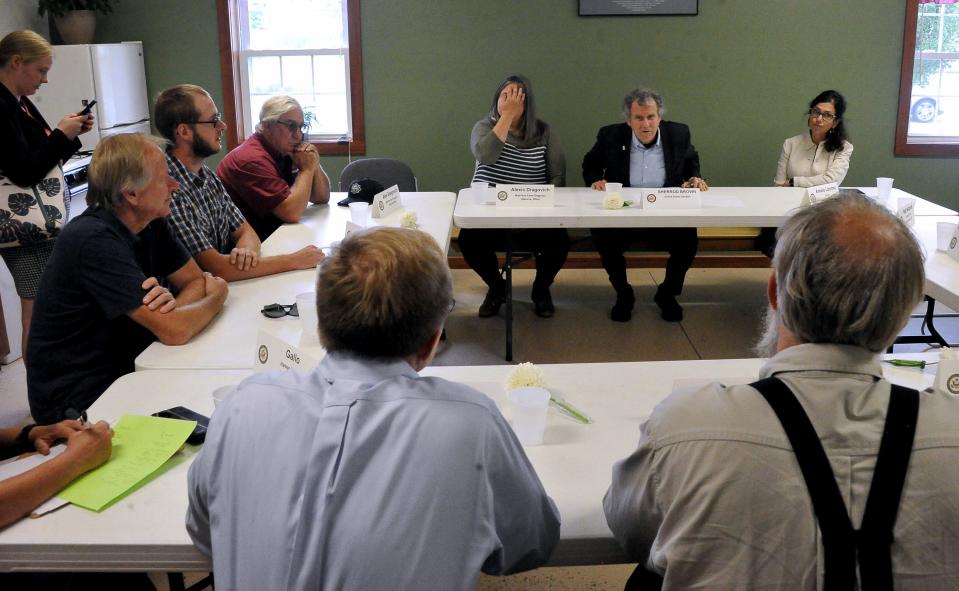
Through surveys and feedback, the Ohio Ecological Food and Farm Association participates in shaping the upcoming Farmers Bill. Policy Director Amalie Lipstreu said they have worked with Brown on the past bills to assure that farmers are supported.
“The folks that are in this room today are part of the solution to many of the challenges we face whether its climate, water quality, healthy food access,” Lipstreu said.
Besides talking about the issues, some farmers had suggestions for problems related to climate change.
Nate Rutz, director of Rustbelt Riders, suggested using more food scraps to produce compost. His company uses food scraps from residents and restaurants to produce healthy soil for farmers.
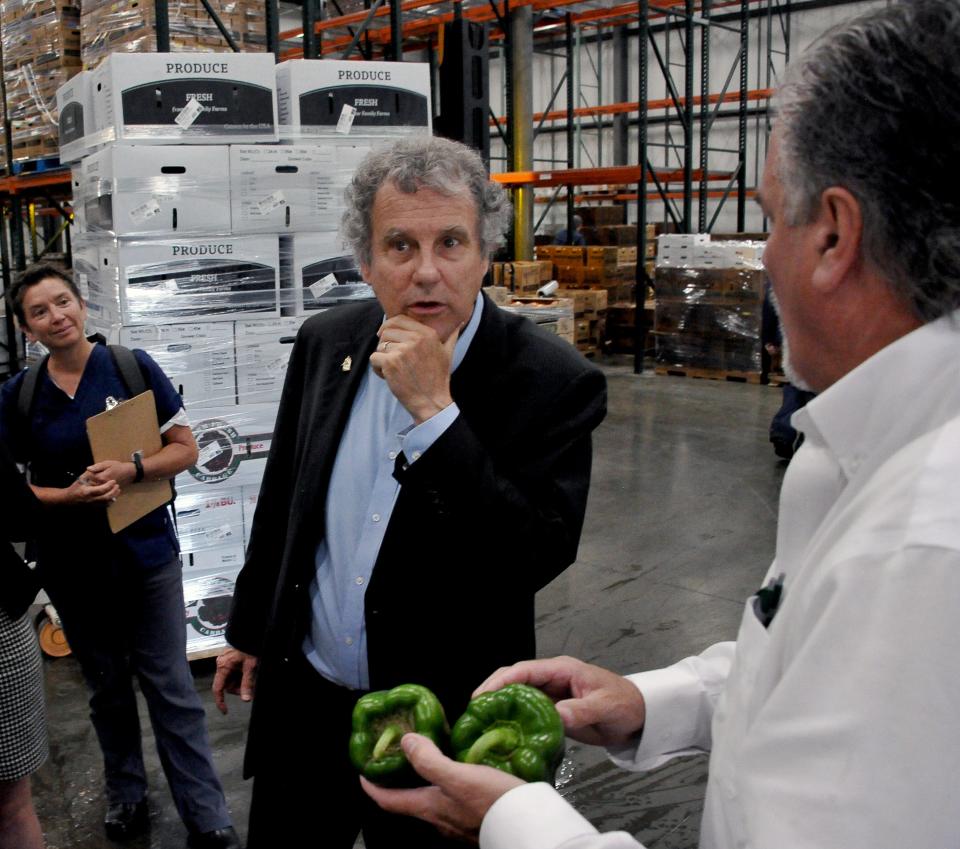
“We have 1.2 million tons of food landfill every year and only 33,000 tons got composted,” Rutz said. He suggested making compost more accessible and using incentive programs to encourage farmers to use it.
In the next few weeks, Brown will continue with the roundtable events in Central Ohio. With this feedback, he will help craft the Senate’s version of the 2023 Farm Bill.
“I want to hear from farmers. I’m putting these questions out to know what they want me to do with this bill,” Brown said.
This article originally appeared on The Daily Record: Sen. Sherrod Brown talks to Ohio farmers at Green Field Farms

